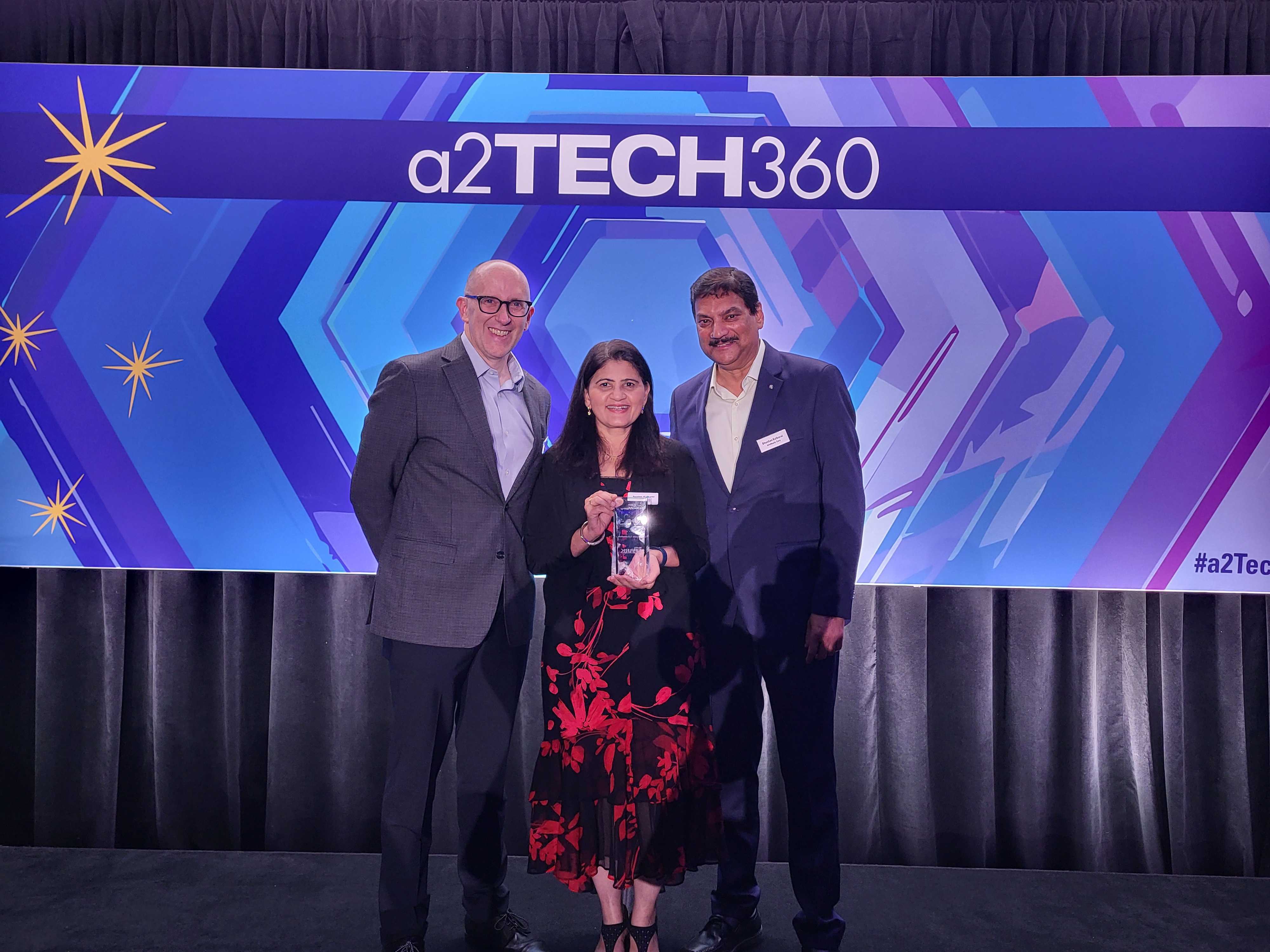The InfoReady team was excited to attend EDUCAUSE 2024 both as an exhibitor and conference attendee. We sat down with Bhushan Kulkarni, InfoReady’s CEO & Founder, and Eric Jacobson, President, to hear about the trends for technology in higher ed that they gleaned from the conference.
Which one or two of the Top 10 EDUCAUSE Issues of 2025 do you think are going to be most impactful to the higher ed CIO?
Bhushan: What they are struggling with the most is not having access to the right data in a comprehensive and consolidated fashion. And turning that data into useful information to make decisions. This happens because the processes of collecting and capturing data are siloed. There is also information overload happening in every silo which makes it hard to manage the data. The need to have easy access to information to make well-informed decisions drives a need to simplify administrative systems. That's why the number one trend, access to data, is closely connected with the second trend, simplification.
 Eric: I agree completely with Bhushan. I think the biggest thing is how universities can use data to make better decisions. For InfoReady, the number two item on the list, administrative simplification, is really interesting to us because we provide access to data (trend 1) in an easy-to-use system (trend 2) to help institutions make sure that their best ideas and most talented people will rise to the top. Of the things that an institution can simplify, its ability to run good selection processes is really vital. That's what InfoReady does.
Eric: I agree completely with Bhushan. I think the biggest thing is how universities can use data to make better decisions. For InfoReady, the number two item on the list, administrative simplification, is really interesting to us because we provide access to data (trend 1) in an easy-to-use system (trend 2) to help institutions make sure that their best ideas and most talented people will rise to the top. Of the things that an institution can simplify, its ability to run good selection processes is really vital. That's what InfoReady does.
Bhushan: I just want to expand on ‘helping the best ideas and best people rising to the top’. That's very important when universities are working to go from good to great. Part of the challenge a university faces is to provide exposure and access to competitive opportunities to everyone. When those opportunities are scattered across multiple websites and departments, it’s difficult for stakeholders to find and apply for them. This is also where InfoReady can help.
What do you think are the challenges that are in store for higher ed in the next year or so?
Eric: In the EDUCAUSE survey of university CIOs, almost everything was related to trust. There's a lack of faith in the content of higher ed right now. There's societal unrest. There’s declining enrollment due to population fluctuations and incredible financial pressure on institutions. These three forces make information technology at universities an urgent issue because they need to try to provide a strong infrastructure to help fight those negative forces.
What opportunities do you see in store for higher ed?
Eric: It’s come down to whether or not institutions can still attract undergrads. Will American young people continue to feel that a college education is really worth it, if there are alternative channels for getting the skills that they need? InfoReady helps to create programs that make a college education still worthwhile. A great example is creating undergraduate research experiences. We can help offices and schools make sure their students have a very rich, bespoke experience where they learn how to think and do research. InfoReady can definitely accelerate that for a campus unit.
Bhushan: I think in 2025, we are going to see a higher trend towards research commercialization. We have already seen research commercialization accelerating all over the map in the past five years.
I think digital transformation is going to drive some of that matchmaking between higher ed and corporate partners to help people find each other and make magic happen together. It’s likely that less funding will be directed toward basic research, with more emphasis on research that shows economic value and economic impact. When fewer federal research dollars flow into institutions, there is an opportunity to turn to commercialization to fund innovation.
 Eric: We're excited at InfoReady that more and more institutions are using us for translational research grant competitions. We're seeing their medical center and CTSI institutes use us for smartly allocating research dollars. We're seeing corporate and foundation-relation offices using us to allocate dollars coming in from corporations and foundations. On the funding side, we see a growing number of corporations and organizations using us to make funding decisions as to how they're going to allocate their research dollars to universities. We believe InfoReady is in the right place at the right time to help both higher ed institutions and corporate partners fuel research and innovation in the coming years.
Eric: We're excited at InfoReady that more and more institutions are using us for translational research grant competitions. We're seeing their medical center and CTSI institutes use us for smartly allocating research dollars. We're seeing corporate and foundation-relation offices using us to allocate dollars coming in from corporations and foundations. On the funding side, we see a growing number of corporations and organizations using us to make funding decisions as to how they're going to allocate their research dollars to universities. We believe InfoReady is in the right place at the right time to help both higher ed institutions and corporate partners fuel research and innovation in the coming years.
As we look to the future, the insights from Bhushan and Eric highlight the critical role of data access and administrative simplification in higher education. By leveraging technology like InfoReady, institutions can navigate the challenges of information overload and siloed data, ultimately enhancing decision-making and fostering a culture of innovation.



